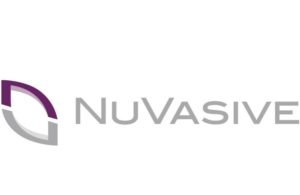 The FDA today issued a notice warning patients, caregivers and healthcare providers of potential issues with Magec devices from NuVasive (NSDQ:NUVA).
The FDA today issued a notice warning patients, caregivers and healthcare providers of potential issues with Magec devices from NuVasive (NSDQ:NUVA).
NuVasive’s Magec, a growing spinal rod system intended for use in children under 10, uses magnets to help correct spinal deformities as the child grows. The company designed Magec to help avoid multiple operations while correcting the spinal curve.
According to the FDA release, there are reports describing endcap separation, O-ring seal failure and potential exposure of internal components of the Magec devices to living tissue that may lead to adverse local tissue reactions. The issues stretch to the following Magec devices:
- MAGEC Spinal Bracing and Distraction System
- MAGEC 2 Spinal Bracing and Distraction System
- MAGEC System
- MAGEC System Model X device
- MAGEC System Model X rod
- MAGEC System Rods
The FDA said that, in 2020, NuVasive made changes to the Magec device design to address issues with endcap separation, which causes a risk of unanticipated exposure of patient tissue to internal components of the device that have not been completely tested for biocompatibility.
In July 2020, the FDA cleared a new version of the Magec X rod, with the updated version designed to mitigate endcap separation.
On April 5 (with a subsequent update on April 9) of this year, NuVasive informed healthcare providers of biocompatibility testing concerns, voluntarily placing all Magec devices on a global ship hold. On the same date, the company had placed a global ship hold on its Precise devices due to biocompatibility concerns.
NuVasive has been evaluating whether components covered by the endcap are biocompatible and satisfy updated standards through testing while working with the FDA. Today, the company posted an updated statement informing U.S. healthcare providers that the U.S. ship hold was lifted for the Magec devices.
The FDA said it believes it is in the best interest of patients to make the modified Magec X device available because the overall benefits outweigh the known risks, the restricted use to patients under 10 years old and over a two-year implantation time further mitigates known risks, the modified device will be the only device version available for sale in the U.S. and the labeling has been updated to include an acknowledgment of known risks associated with the device.
NuVasive is investigating the root cause of the issues and working with the FDA to evaluate the new biocompatibility testing results with an eye on whether there is any clinically meaningful impact on patients with Magec devices.